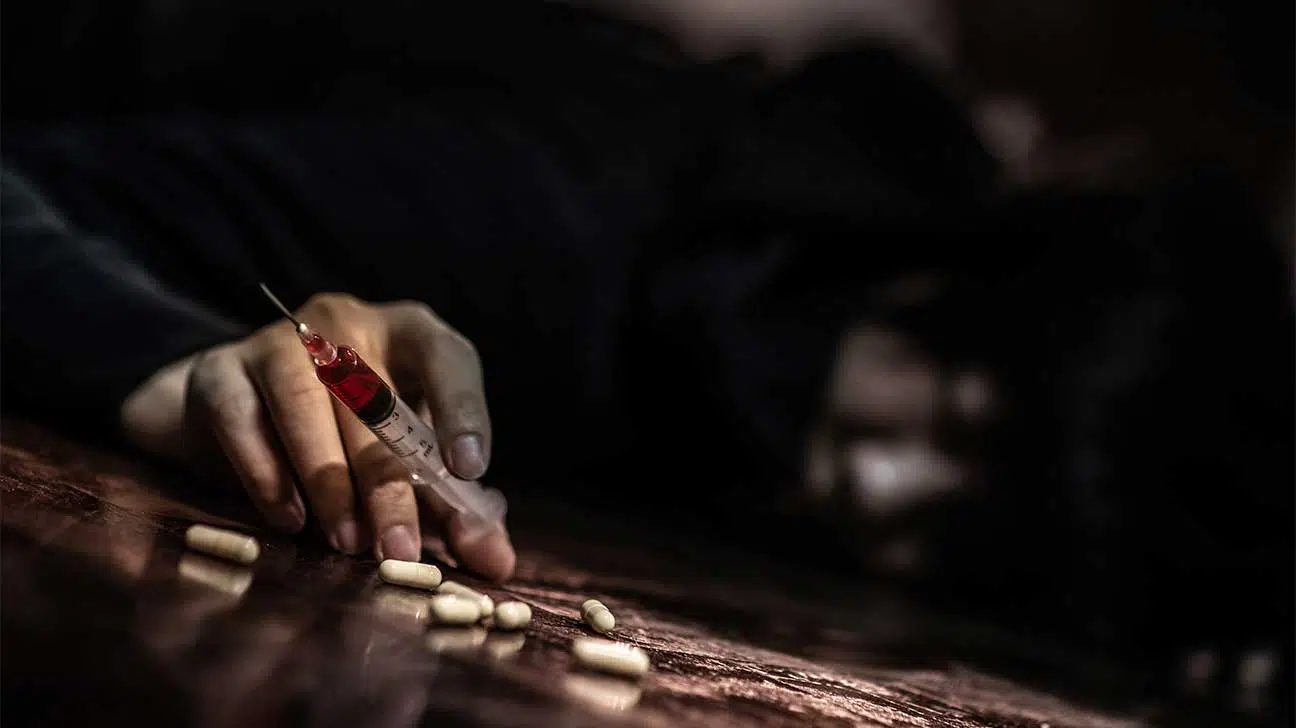
Prescription opioids such as fentanyl offer a lot of medical benefits when it comes to treating severe pain or chronic pain.
Fentanyl is notoriously potent and poses risks when abused on its own, or when combined with other substances such as alcohol or benzodiazepines.
Due to its potency and frequent use as a hidden cutting agent in other illicit drugs, drug overdose deaths from fentanyl abuse have only continued to grow in recent years.
Fortunately, there is a life-saving antidote for overdoses involving fentanyl and other synthetic opioids. It comes in the form of the medication naloxone, which is an opioid antagonist.
How Naloxone Works During A Fentanyl Overdose
Naloxone works by binding to opioid receptors in the brain, blocking the fentanyl from binding to them instead and preventing it from flooding the brain with dopamine.
It is important to remember that Naloxone works temporarily and has a short half-life, only working to reverse an overdose for around 30 to 90 minutes.
Can Narcan Be Used More Than Once During A Fentanyl Overdose?
Narcan can be used more than once during a fentanyl overdose, and oftentimes needs to be used more than once, as fentanyl is a particularly potent opioid.
Each dose of naloxone starts taking effect within two to five minutes after it is administered. Normal breathing is restored shortly thereafter.
What To Do After Administering The Fentanyl Overdose Antidote
After administering Narcan, the person who is overdosing should be given CPR and monitored closely.
If there is no effect after a few minutes, an additional dose of naloxone should be given. Most Narcan kits come equipped with two doses.
Never leave a person alone who is experiencing a fentanyl overdose, and always stay with them until help from the emergency health department arrives.
Understanding When To Give Narcan
Narcan should be given any time it is available and a suspected opioid overdose is taking place.
Narcan only counteracts the effects of opioids such as fentanyl, oxycodone, and codeine, and will not be able to reverse the effects of any other illicit drugs that have been used in combination.
Narcan does work, however, on illicit opioids such as heroin.
Signs of a fentanyl overdose may include:
- depressed respiration rate
- struggling for breath
- choking or gurgling
- loss of consciousness
- changes in skin color
- constricted pupils
What Happens If You Give Narcan To Someone Who Doesn’t Need It?
Narcan is considered safe and will have no effect on someone unless they have opioids in their system. It will not work on a non-opioid drug overdose.
People can have allergic reactions to naloxone in very rare instances and may experience symptoms that are mild to severe.
What To Know When Saving Someone From A Fentanyl Overdose
Witnessing a fentanyl overdose can be a terrifying experience, especially if it is one of your loved ones who is overdosing.
Knowing what to do and having the right training and materials on hand can make a huge difference.
Contacting First Responders
Calling the emergency department should always be the first step performed when someone is experiencing an opioid overdose, even when naloxone is on hand.
Also, never leave a person who is overdosing alone while they wait for emergency health services to arrive.
Naloxone (Narcan) Administration
Naloxone is FDA-approved in two forms: by injection or a nasal spray. The injectable form of naloxone requires special training and should only be administered by healthcare providers.
The nasal spray is what is sold under the brand name Narcan. This type of naloxone requires no special training and is now available in most pharmacies.
People who are concerned about one of their family members and their opioid use may want to carry naloxone on them at all times.
Giving CPR
CPR can be used in combination with Narcan to help clear a person’s airway and get them to return to normal breathing.
Certification is typically required in order to perform CPR correctly and confidently and can cause serious injury if done without proper knowledge and training.
If you ever have doubts about whether or not to use CPR, remember that most states have Good Samaritan laws in place that will protect you.
Seeking Follow-Up Fentanyl Addiction Treatment After An Overdose
Naloxone can prevent a fatal overdose, but it cannot treat addiction. It also cannot treat any co-occurring mental health disorders that may have contributed to the addiction.
After surviving a fentanyl overdose, a person will still need to follow up with treatment for addiction and drug use disorder.
Treatment for opioid addiction usually includes medication-assisted treatment (MAT), using medications such as methadone or buprenorphine to help with withdrawal symptoms.
Medications such as methadone can be addictive in themselves but are considered safe when used under the direction of a prescribing physician.
Find Substance Use Disorder Treatment Today
If you are seeking addiction treatment for an opioid use disorder for either yourself or a loved one, please know that you are not alone.
We can help you get started at a treatment center in your area as soon as you are ready, as well as answer any questions you have about substance abuse treatment.
Addiction Resource aims to provide only the most current, accurate information in regards to addiction and addiction treatment, which means we only reference the most credible sources available.
These include peer-reviewed journals, government entities and academic institutions, and leaders in addiction healthcare and advocacy. Learn more about how we safeguard our content by viewing our editorial policy.
- Centers for Disease Control and Prevention (CDC)
https://www.cdc.gov/stopoverdose/fentanyl/index.html - National Institute on Drug Abuse (NIDA)
https://nida.nih.gov/publications/drugfacts/naloxone - National Library of Medicine: MedlinePlus
https://medlineplus.gov/druginfo/meds/a605043.html - Substance Abuse and Mental Health Services Administration (SAMHSA)
https://www.samhsa.gov/medication-assisted-treatment - United States Drug Enforcement Administration (DEA)
https://www.dea.gov/factsheets/fentanyl


